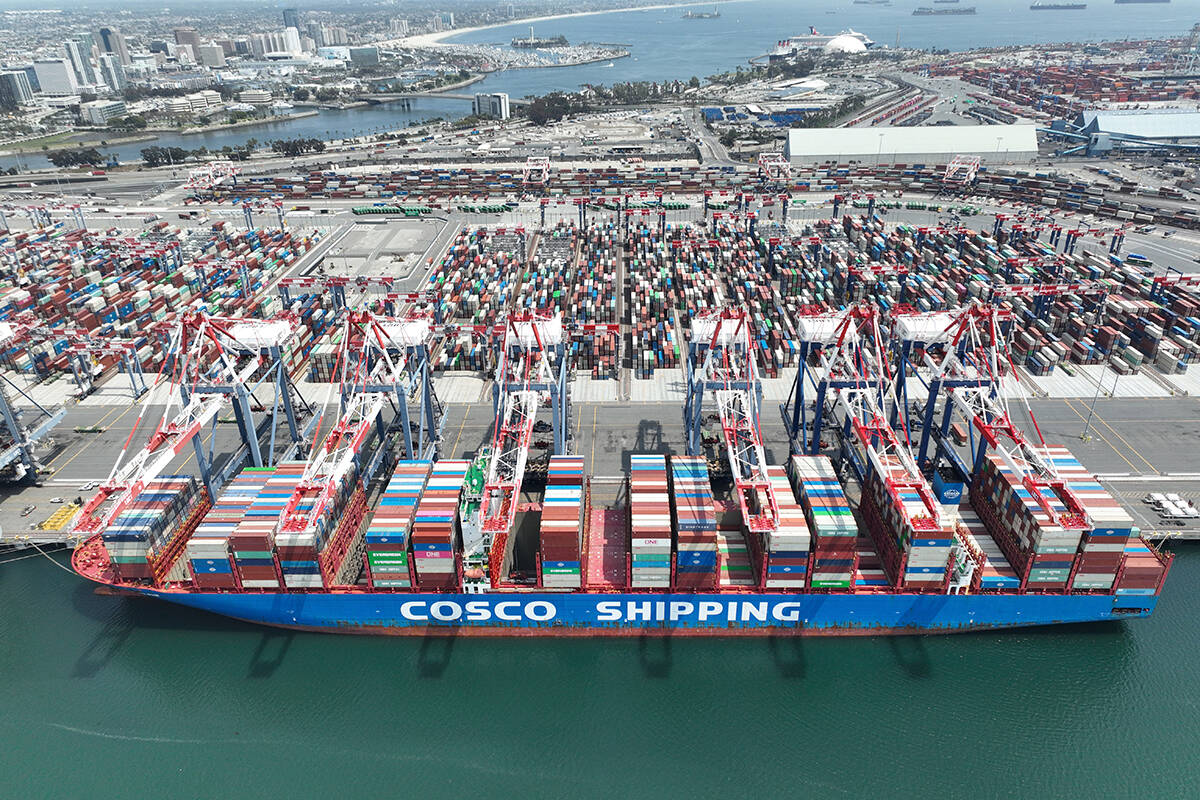Manitoba hog producer Lauren Wiebe has a great big piggy bank full of money saved for him by Uncle Sam.
He’s now getting ready to smash the bank and spend the money.
Every pig Wiebe’s Topeaka Farms exported to the United States since last fall has cost him a hefty duty payment, one that is now being refunded.
“It hurt, but at the same time we were able to do it, and it was like a forced savings account,” said Wiebe, who expects to receive a cheque for about $300,000 in duty refunds within six months.
Read Also

U.S. softens fees on Chinese shipping
The U.S. starts charging new fees on Chinese ships on Oct. 14. What are the ramifications for their ag exports?
“Instead of that money going into our own account, it was saved for us in the States.”
Dozens of major prairie hog producers are going to be receiving cheques from American duty brokers refunding them for the duties that have been imposed on Canadian hog imports since last autumn.
Early duties of 14 percent on both slaughter hogs and weanlings were later reduced to 10.63 percent for most producers in March. Those duties were collected even past the April 6 ruling in favour of Canada, which included the decision to suspend and refund the duties.
Only after the International Trade Commission’s written ruling is released, which Wiebe expected to happen April 18, will the U.S. customs service stop forcing importers to collect the duties.
Wiebe, whose Grunthal, Man., farm exports weanlings to American corn belt feeder barn operators, said he isn’t going to squander his newfound wealth. All of it will be used to improve his farm, with most of it going to support a biogas digester system that he wants to set up.
The biogas digester will not only eliminate some stinky fumes from barn manure, but will also burn the gas to provide energy for the farm and to sell into the Manitoba Hydro electricity grid.
Winning the trade battle allowed the project to go ahead.
“If the ruling had gone against us, it would have been tough starting it,” said Wiebe.
Ironically, the U.S. trade action against Canadian pigs has helped Canadian producers like Wiebe save money that will now be spent on building and improving their barns, making them even tougher competitors for American producers in the future.
Wiebe said the trade action taught him both how to handle a sudden and unexpected cut in profitability, and that future shocks can be handled if a farm is modern and sound before the shock strikes.
“If you don’t reinvest in your business, you can’t make changes, and you have to be able to handle changes.”

















